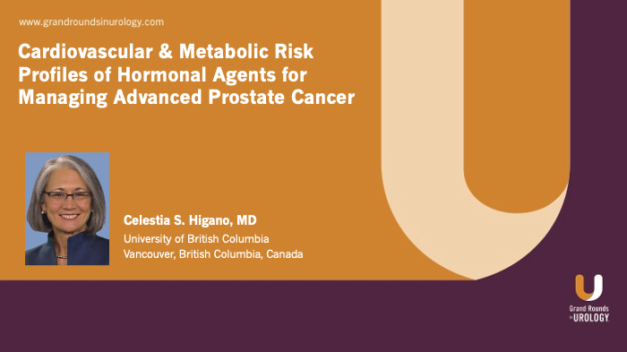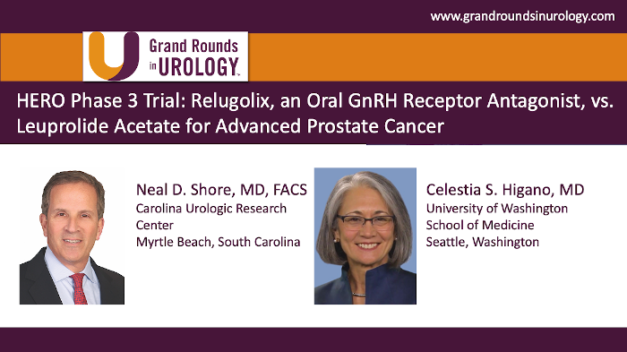Cardiovascular & Metabolic Risk Profiles of Hormonal Agents for Managing Advanced Prostate Cancer
Celestia S. Higano, MD, FACP, Adjunct Professor in the Department of Urologic Sciences at the University of British Columbia and Medical Director of the Prostate Cancer Supportive Care Program at the Vancouver Prostate Centre, reviews her 2020 paper outlining the cardiovascular risks associated with ADT and new treatments for prostate cancer, highlighting its increasing relevance in the wake of recent approvals for drugs like relugolix. She explains that there is controversy in the literature regarding whether ADT increases cardiovascular risks, but suggests that patients who are already at risk of cardiovascular disease may see more adverse cardiovascular effects on ADT. Phase 3 trials combining ADT with drugs like enzalutamide, apalutamide, and abiraterone, as well as other second-generation antiandrogens, demonstrate greater cardiovascular risk to patients on a combination as opposed to on ADT alone. Dr. Higano emphasizes that urologists must discuss risk factors for cardiovascular disease with their patients before prescribing these treatments, and she recommends following the Vanderbilt Cardiooncology Group’s ABCDE checklist with them.
Read More

